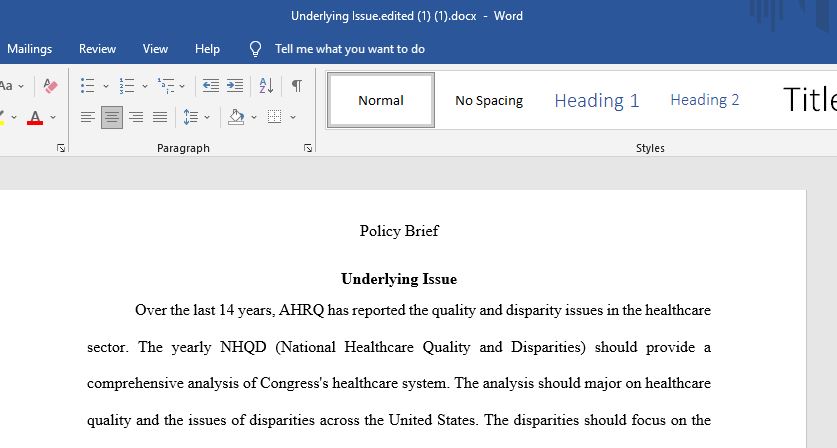To analyze an issue is to understand the problem and context of the problem.
To analyze an issue is to understand the problem and context of the problem. Nurses engage in policy analysis through the creation of policy briefs, which promote awareness of the problem, and provide context of the problem, resolution options and their pros and cons, and a recommended solution. Nurses use policy briefs to communicate issues and solutions to government policy analysts.
Read the 2016 National Healthcare Quality and Disparities Report on the Agency for Healthcare Research and Quality website
Review the updated data and identify a possible meaningful policy change to improve care, lower costs, and reduce health disparities in your current role and place of practice, or the role you are pursuing. You will use this issue as you complete your policy brief.
Search the Internet for the Association of Rehabilitation Nurses Health Policy Tool Kit and explore the toolkit. This can help you prepare your brief.
Research the policy change further and write 1,400-word paper in which you identify the following:
- Underlying issue
- Stakeholders
- Resolution
- At least 2 specific alternative resolutions
- Positive consequences of each resolution
- Negative consequences of each resolution
- Cost of each resolution
- Financial implications of each resolution
- Economic
- Resources
- Quality of care
- Patient outcomes
- Ethical considerations of each resolution
- Legal and regulation considerations of each resolution
- Include one legal case as supporting evidence for each resolution.
- Include one existing regulation as supporting evidence for each resolution.
Cite at least three scholarly articles, one of which can be Health Policy and Politics, to support your findings.
Format your paper according to APA guidelines.
Requirements: 1,400 words
Answer preview:

word limit:1488
